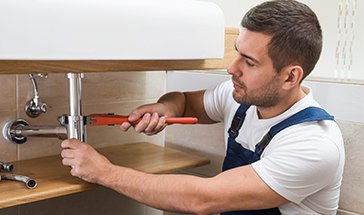Water freezing inside a pipe is bad news. It could expand and cause your water pipes to burst, wreak havoc on your water system, and cause flooding in your home. If you have already experienced burst pipes during the cold months, you know why protecting your pipes is a must, especially during the winter season.
This is why pipe insulation is important. It reduces your pipes’ exposure to cold outdoor weather and the risk of burst pipes. At the same time, it saves you money on energy bills and retains heat on hot water pipes. Calling a professional plumber is also necessary to repair your pipes, drains, and other plumbing problems.
Pipes that need insulation
We all know that insulating outdoor water lines and pipes are the only ones to be insulated. However, it would be best to consider insulating other pipes in your home, including those in unheated spaces such as basements, attics, and garages, among a few. There are several reasons why you should insulate your water pipes:
- Reduce the risk of contracting and expanding pipes due to changes in temperature
- Manage condensation, especially in warm areas with a cold water supply
- Save on energy bills
- Prevent pipes from freezing due to cold weather
- Reduce the risk of heat loss from the pipes between the faucets and the water heater
Heating water uses up about 17% of total energy consumed by homeowners and could cost you up to $600 annually. Older homes might also have exposed water pipes, making insulation installation easier. But if you are yet to build a new home, you should also include pipe insulation in your budget. It won’t usually cost you thousands of dollars but will help save you money and extend the lifespan of your pipes.
How to install pipe insulation
Here are the materials you will need for pipe insulation:
- Expanding spray foam
- Duct tape
- Preferred insulation
- Foam caulk rope
There are three types of pipe insulation: pipe-wrap, pipe sleeve, and outdoor faucet cover. Foam pipe sleeves are easy to install and often recommended for straight and long pipes that need some covering.
Pipe-wrap insulation is also easy and simple to install and is often recommended for insulating small pipe lengths. It usually comes in different materials such as foam-and-foil pipe insulation tapes, bubble film pipe wrap, flexible foam with rubber backing, and natural cotton wrap, among a few.
Outdoor faucet covers protect your faucets outside the house against freezing temperatures and other harsh outdoor weather. You can easily find it online and in most hardware stores.
Regardless of the pipe insulation type you choose, you should check your pipes regularly, especially during the cold months. Open the spigots to drain the pipelines in time for the first hard freeze. You can do this occasionally if you cannot turn off the outdoor water supply and ensure the water pressure is normal.
Don’t wait until your pipe bursts due to cold weather. Installing pipe insulation is a must to keep your pipes protected and long-lasting. Contact a professional plumber in Mt. Pleasant, TN, today!



